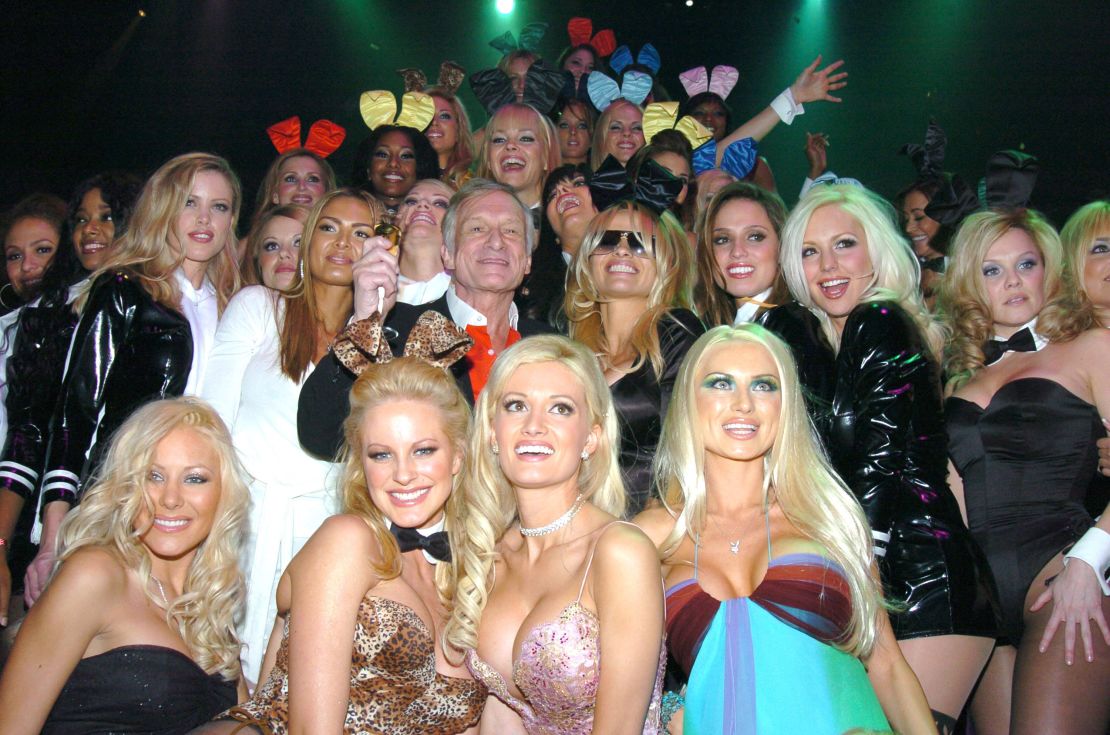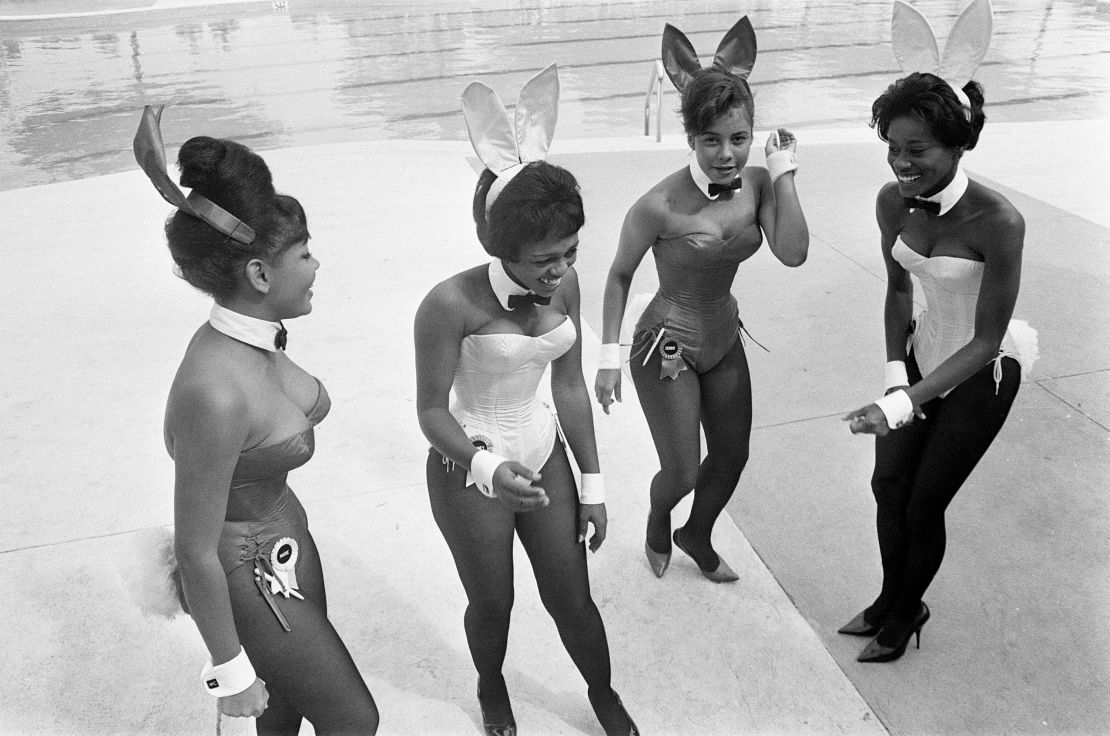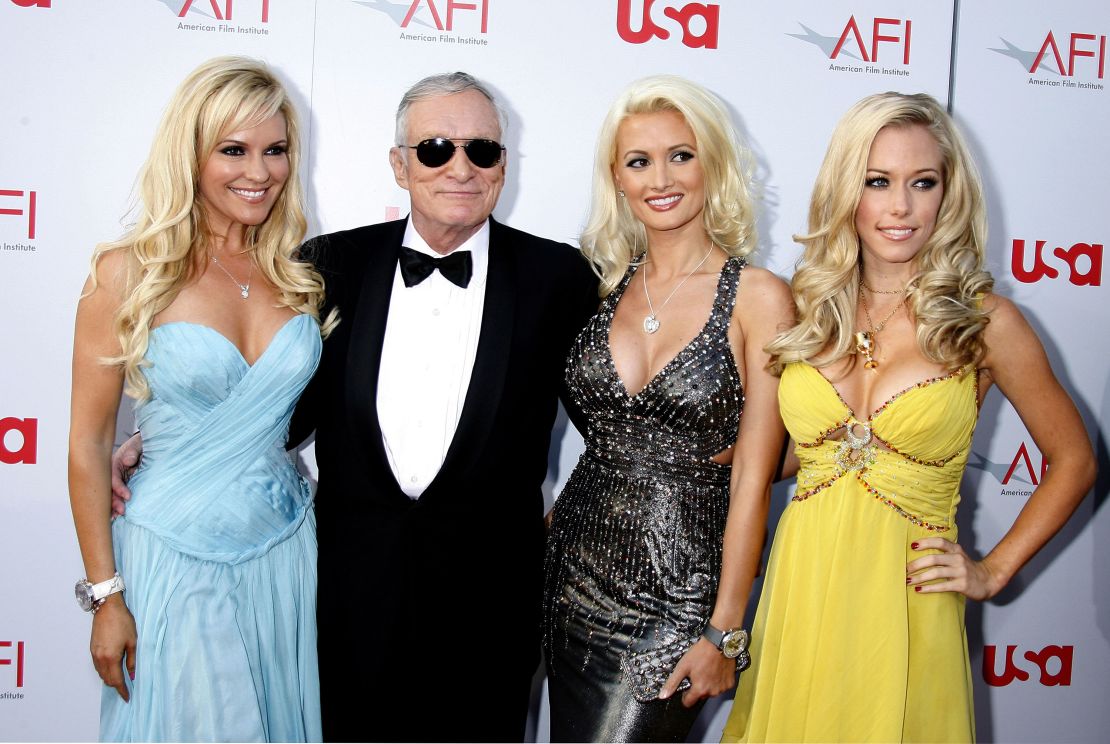How Playboy lower ties with Hugh Hefner to create a post-MeToo model

Editor’s Word: The views expressed on this commentary are solely these of the writers. CNN is showcasing the work of The Dialog, a collaboration between journalists and lecturers to supply information evaluation and commentary. The content material is produced solely by The Dialog.
The Dialog
—
Hugh Hefner launched Playboy Journal 70 years in the past this yr. The primary subject included a nude {photograph} of Marilyn Monroe, which he had bought and printed with out her data or consent.
Hefner went on to construct the Playboy model off the backs of the numerous girls featured in its pages, whose magnificence and efficiency of heightened female sexuality have entertained its readers for generations.
Approaching its seventieth anniversary in December, Playboy has radically shifted. With the journal now not in publication, the Playboy Mansion offered to a developer and London’s final remaining Playboy Membership closing in 2021, what’s the future for Playboy? The model is altering to maintain up with the post-#MeToo world.
Hefner handed away one month earlier than allegations towards movie producer Harvey Weinstein surfaced in 2017 giving momentum to the #MeToo motion (which noticed survivors of sexual assault and harassment converse out towards their abusers).
READ MORE: Intercourse, love and companionship … with AI? Why human-machine relationships might go mainstream
Lately, many have re-evaluated Hefner’s legacy and relationships with girls. The 2022 docuseries “The Secrets and techniques of Playboy” (which aired on Channel 4 within the UK) detailed sexual misconduct accusations towards Hefner from a number of ex-girlfriends, together with mannequin Sondra Theodore and TV character Holly Madison.

Hefner and Playboy’s relationship with girls has been difficult. Playboy was an early supporter of abortion rights, helped fund the primary rape equipment and was at instances an early proponent of inclusivity (for instance that includes transgender mannequin, Caroline “Tula” Cossey, in its June 1981 subject). However most ladies featured in Playboy have match inside a slender magnificence commonplace — skinny, white, able-bodied and blonde.
In the meantime Hefner’s private relationship along with his a lot youthful girlfriends reportedly adopted patterns of management and emotional abuse. Ex-girlfriend Holly Madison described Hefner as treating her “like a glorified pet” in her 2015 memoir, “Down the Rabbit Gap.”
Hefner’s passing meant he evaded reckoning with the #MeToo motion. Playboy, nonetheless, responded, releasing a assertion through which it affirmed assist for the ladies featured in “The Secrets and techniques of Playboy” and referred to as Hefner’s actions “abhorrent.”
The assertion declared that the model was now not affiliated with the Hefner household and could be specializing in facets of the corporate’s legacy that align with values of intercourse positivity and free expression.
READ MORE: The ‘milf’: a short cultural historical past, from Mrs Robinson to Stifler’s mother
As we speak, Playboy is a really totally different firm from the one Hefner launched practically 70 years in the past. Roughly 80% of Playboy employees establish as girls, in accordance the corporate, and its motto has modified from “Leisure for Males” to “Pleasure for All.” Shares within the firm are publicly traded and 40% of its board and administration are girls.
The corporate has additionally moved in direction of extra creator-led content material by means of its app, Playboy Centerfold. Just like subscription content material service OnlyFans, Playboy Centerfold permits subscribers to view content material from and work together with its creators, which it name “bunnies.”

On the app, creators — or bunnies — are in a position painting their very own our bodies nonetheless they want, placing the ability again of their arms. Maybe Playboy’s future is now not in serving the male gaze, however as an alternative the very viewers Hefner dismissed in his first letter from the editor:
“If you happen to’re a person between the ages of 18 and 80 Playboy is supposed for you … If you happen to’re any individual’s sister, spouse or mother-in-law and picked us up by mistake, please move us alongside to the person in your life and get again to your Women Residence Companion.”
The celebs of Playboy’s mid-2000s actuality collection, Holly Madison and Bridget Marquardt, are additionally having fun with a resurgence amongst followers.
“The Women Subsequent Door” launched in 2004. The present targeted on the lives of Hefner’s three girlfriends, Madison, Marquardt and Kendra Wilkinson. It grew to become E’s greatest performing present and cultivated a brand new feminine viewers for Playboy.
“The Women Subsequent Door” was a narrative of difficult empowerment regardless of patriarchal interference. Its three feminine protagonists went from being recognized solely as a few of Hefner’s many blonde girlfriends, to celebrities in their very own proper.
They every finally broke up with Hefner, leaving the Mansion and occurring to guide profitable careers.
The present’s depiction of Madison, Marquardt and Wilkinson as empowered, fun-loving and sophisticated people, who discovered pleasure and company by means of expressing their sexuality was maybe what drew so many feminine followers to the present. Nevertheless, amid the women’ combat for company, Hefner retaliated.

The collection exhibits that he maintained closing say in each Playboy {photograph} of the women, in addition to imposing strict curfews and spending allowances.
In Madison and Wilkinson’s memoirs, “Down the Rabbit Gap,” and “Sliding into Residence,” they declare that manufacturing persistently undermined them. They refused to pay them for the primary season, didn’t credit score them till season 4 and aired their uncensored nude our bodies in international broadcasts and DVD releases with out consent.
READ MORE: #MeToo in house: We should tackle the potential for sexual harassment and assault away from Earth
Fan curiosity in “The Women Subsequent Door” stays robust. In August 2022 Madison and Marquardt launched their podcast “Women Subsequent Degree,” the place they interview earlier playmates and work together with followers. In addition they recap episodes from their very own factors of view, unpacking their experiences of engaged on the present.
Having reached 10 million downloads as of February 2023, the success of the podcast — 14 years after the final episode of “The Women Subsequent Door” — speaks to the cultural legacy of the Playboy model. It additionally exhibits that regardless of Hefner’s unique editor’s observe, Playboy resonates with some girls.
Playboy is now in a post-Hefner period, the place the imagery of girls discovered inside previous problems with Playboy can function inspiration for others to get pleasure from their very own sexuality. Regardless of the future has for the corporate, the idea of Playboy has change into public property — be that within the look of Playboy bunny costumes every Halloween, the recognition of cheeky Playboy emblem tattoos or branded lingerie and clothes.
In a post-#MeToo period, the ladies of Playboy are talking up and taking on. With the mansion gates closed, the bunnies are lastly reclaiming the model as their very own.

High Picture: Hugh Hefner with Playboy “bunnies” in London in 1966.






